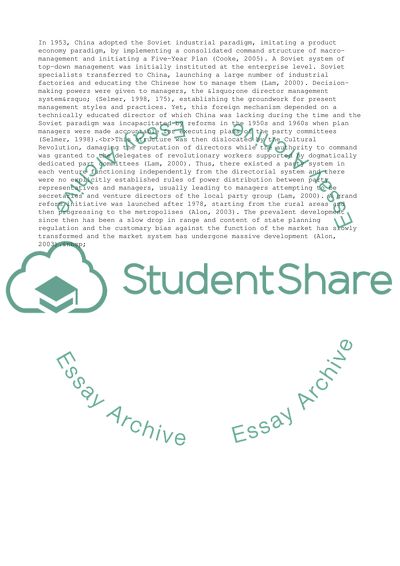Cite this document
(“A Culture Briefing of the Chinese Business Environment Research Paper”, n.d.)
A Culture Briefing of the Chinese Business Environment Research Paper. Retrieved from https://studentshare.org/business/1739894-employees-guide-to-china
A Culture Briefing of the Chinese Business Environment Research Paper. Retrieved from https://studentshare.org/business/1739894-employees-guide-to-china
(A Culture Briefing of the Chinese Business Environment Research Paper)
A Culture Briefing of the Chinese Business Environment Research Paper. https://studentshare.org/business/1739894-employees-guide-to-china.
A Culture Briefing of the Chinese Business Environment Research Paper. https://studentshare.org/business/1739894-employees-guide-to-china.
“A Culture Briefing of the Chinese Business Environment Research Paper”, n.d. https://studentshare.org/business/1739894-employees-guide-to-china.


